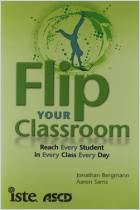Únase a getAbstract para acceder al resumen.

Únase a getAbstract para acceder al resumen.
David Joyner and Charles Isbell
The Distributed Classroom
MIT Press, 2021
¿De qué se trata?
Georgia Tech’s David Joyner and Charles Isbell believe remote and hybrid learning offer bold new possibilities.
Recommendation
With the onset of the COVID-19 pandemic, the classroom experience changed dramatically. Georgia Tech’s David Joyner and Charles Isbell see crisis-driven developments in education as harbingers, signals of a vast potential to create new educational possibilities for broader communities of global students without sacrificing quality of education. Here, Joyner and Isbell discuss how technology and student-centric teaching could transform the future of education into one of lifelong learning. Their book will help educators, instructional designers and administrators understand new educational paradigms – and avoid the dystopian pitfalls of moving education online.
Summary
About the Authors
David A. Joyner is the executive director of online education and the Online Master of Science in Computer Science program at Georgia Tech. Charles Isbell is Georgia Tech’s John P. Imlay Jr. Dean of the College of Computing.


















Comment on this summary